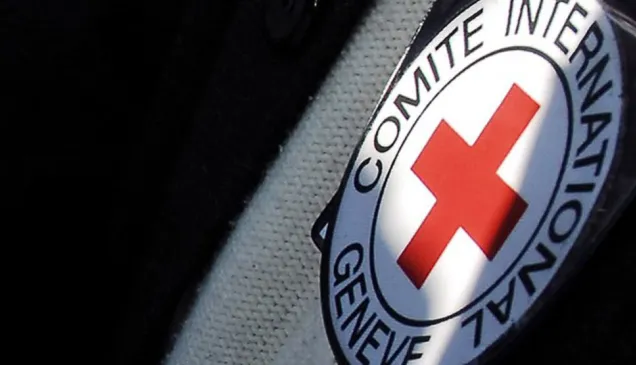Time does not heal the wound, it teaches you to live with it
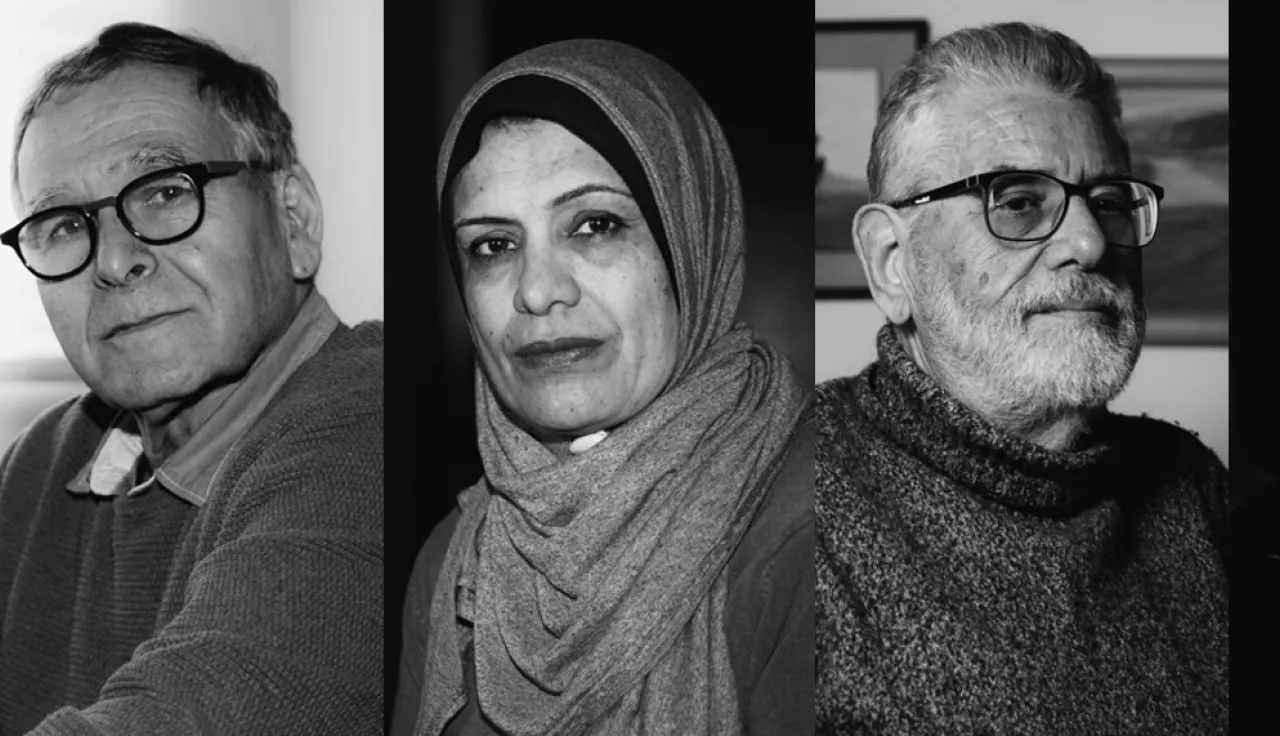
Losing someone you love is the worst nightmare every human being dreads. When you lose a loved one to conflict and violence, there is more than pain. There is anger and frustration. There is trying to make sense of a senseless loss, that leaves a gaping hole in your heart for the rest of your life.
For several decades, the Israeli-Palestinian conflict has been wreaking havoc in people’s lives. Members of the Parents Circle, an Israeli-Palestinian organisation of families, who have lost a family member to the ongoing conflict, share their stories of grief hoping that no other family has to live the horror they have been through.
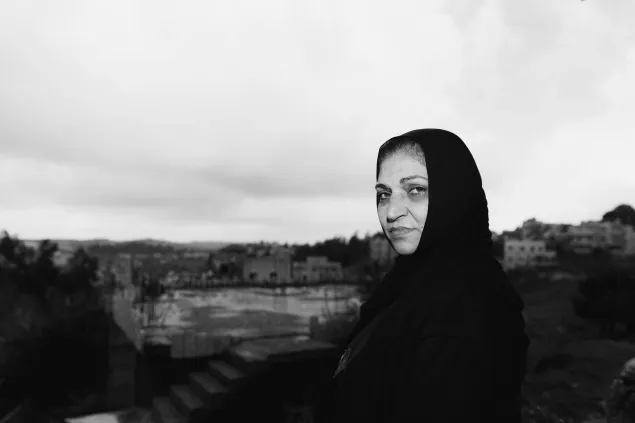
BUSHRA
I was married very early. I had to leave my home behind and move in with a new family. It was a difficult time for me. When my baby boy, Mahmoud, was born, my life was illuminated. Suddenly everything made sense.
When the Intifada started I was happy that Mahmoud was still a child. But he was growing fast and by the time he turned seventeen it was not over yet. One night, soldiers came to destroy a house and clashes broke out in our village.
I was sure Mahmoud was in his room studying. When gunfire broke out in the street, I went around the house to check on my children. This was when I realised that Mahmoud was not at home, so I told his father to go look for him.
I sat at home waiting, not knowing what to do. A neighbour came in and said, “Your son is in the hospital. But don’t worry he is fine.” I remember rushing to the hospital, imagining inside my head how I would scold Mahmoud for not listening to me when I told him to stay home.”
When I entered the hospital, I saw my husband slapping his head with Mahmoud’s slippers, crying and screaming, “Mahmoud is gone!” At that moment I lost everything. My world collapsed. This pain never goes away. I could not bring myself to dance at my daughter’s engagement party. Every single day is just like the day I lost him.
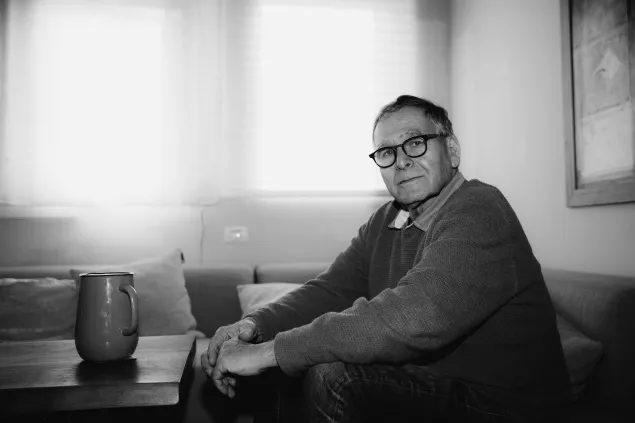
RONI
I was in the garage when Elad, my younger son, called and said, “Daddy, come home, people from the army are here.” When I entered the apartment, I saw my wife sitting on the floor. My 14-year-old son was trying to make her stand. My son Amir was in the army for only three months when he was killed by a suicide bombing attack.
After Amir died, I would go to visit his grave at the military cemetery. There was an empty lot next to it. I remember I always looked at it, thinking, “Who is the naive one, who doesn’t know this empty lot is waiting for his son.” It turned out to be me.
In 2000 a soldier was killed in Gaza. He was my son Elad’s best friend. They were like brothers. Three weeks later, Elad committed suicide. He left a letter saying he couldn’t suffer anymore. That losing his brother and losing his best friend was more than he could bear.
I could not believe this was happening to me. My mind was unable to process it. I just cannot describe the feeling.
Today, as soon as my head touches the pillow, the memories come back. I miss doing things together with them. Playing with them when they were children. This feeling of missing someone can be as deep, as an endless ocean.
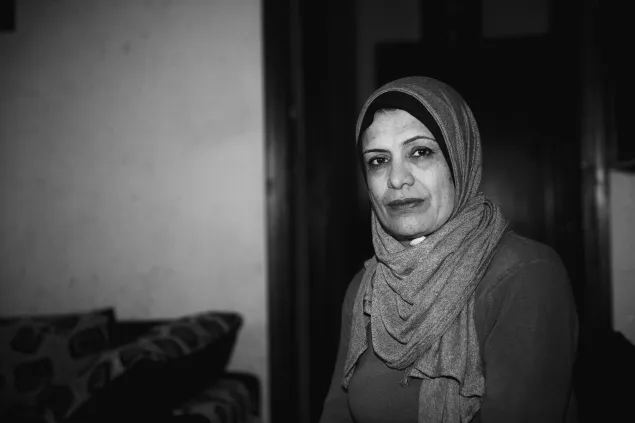
AISHA
When I was a girl, I took care of my six brothers and two sisters. Mahmoud was the one closest to me. He worried about me, protected me at school. He was also the person who always pushed me to study. Our father wasn’t rich and preferred to give education to the boys. But Mahmoud insisted. Because I took care of them, my brothers and sisters, became like my children to me.
During the first intifada Mahmoud was seventeen. He went to visit the house of our uncle when clashes started in the street. A bullet entered his heart. At the hospital, the surgeon told us to pray for a miracle. And by miracle, his heart kept beating. But the doctors didn’t tell us for how long his heart would last.
On the day he died, I was overcome by the feeling that something tried to take my soul away. I couldn’t breathe. I went to Mahmoud’s house. When he saw me, he said, “It’s good you came. I need you to be with me all the time.” He put his hand on his heart and died. I felt that I lost my child. I felt this was the end for me. I didn’t want to go on living.
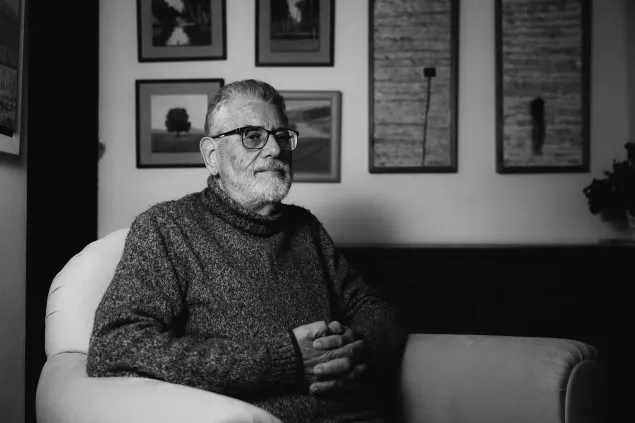
BEN
I was in the kitchen washing dishes with the TV on. They stopped the programme to report that there was a terror attack next to a bus stop, a suicide bombing. As I was looking at the images on the screen I realised that I knew the place. I had been there before.
I waited for my daughter Yael to call. When something like this happened she always did. She would ask, “Dad, what are you making for dinner?” But I knew she just wanted to reassure me she was all right.
I called her number, no answer. I called other numbers but couldn’t get through. It became dark. The telephone stayed quiet. This was when I realised that Yael would never call again.
The following days the house was full of people: family, friends, strangers who wanted to pay respect. Thousands of people. And then it was empty again. I was alone and I couldn’t stop crying. I wanted to stay in bed waiting for my death. I was angry. It’s been fifteen years, and I am still angry today. Time doesn’t heal the wound. It teaches you how to live with it.
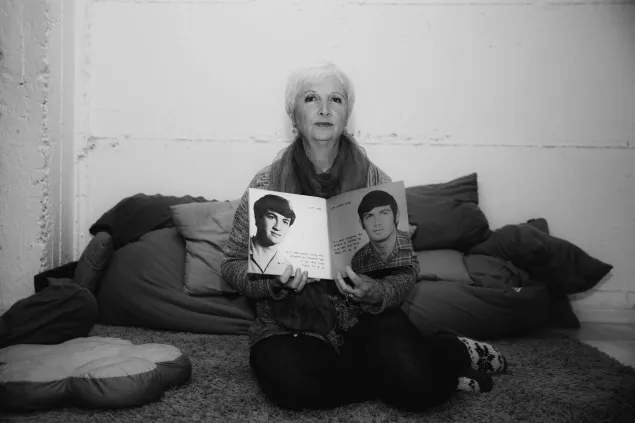
ANAT
I usually say to people that I have two older brothers: Pinki is twenty-three, Yair is nineteen and I am sixteen.
They protected and pampered me and were a source of pride and security for me. Fragments of childhood memories keep emerging, and they warm my heart. I remember how, as a child, I tried to ride a bicycle, unsuccessfully tough. I gave up after a few attempts, but Pinki realised how much confidence and freedom this skill would grant, and he wouldn't give up. He devoted his time to teach me, ran behind my bike, watched over me and encouraged me until I succeeded.
I remember when Yair and I got presents from our aunt and uncle in the US when I was a young girl. I got two pairs of fashionable and fancy trousers, and Yair got two pairs of jeans which were then, in Israel of the early seventies, very sought after and rarely found. Yair saw how much I wanted a pair of jeans like his, and without hesitation offered me to choose one pair and have it altered to fit me. I have had many pairs of jeans since then, but none so cherished and loved like that one.
Pinki and Yair, my two beloved brothers, were both killed on the same day in the Yom Kippur war. I was sixteen at the time. The world stopped for me and my parents. My childhood ended that day. I tried to keep strong for my parents. And they tried to keep strong for me.
I never managed to come to terms with what happened. I carry this pain in my heart all the time.
This loss has changed the path of my life. I miss them terribly and often try to imagine how life would be if they were still here.
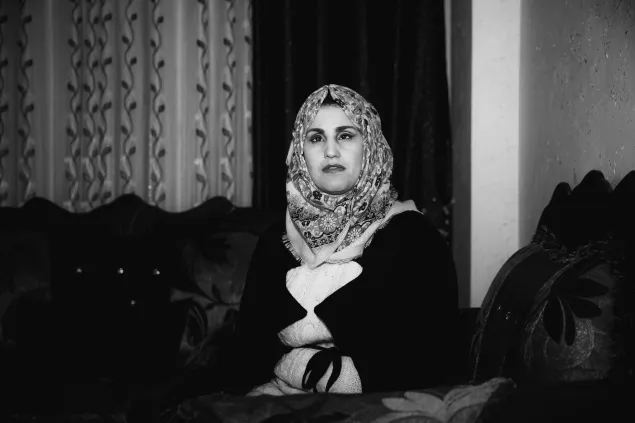
IKHLAS
I was born blind. My father was my eyes. I remember how he tied my shoes, how he carried me. He worked as a taxi driver. I was seventeen at the time. On that September morning in 2004, I was in a hurry and left the house without giving him a kiss.
I was at home studying when a neighbour came to tell me my father was shot by a settler on a minor road. I ran out of the house forgetting to wear a hijab. There were many people gathered in the street, women, men.
I heard someone saying that the man died. I felt as if I was submerged in very cold water. I started to cry.
Until I touched him, I didn’t believe he was dead. No matter how much time passes, the pain does not change or go away. You learn to live with it. I still remember his voice, his touch. I don’t want anybody to go through this.



